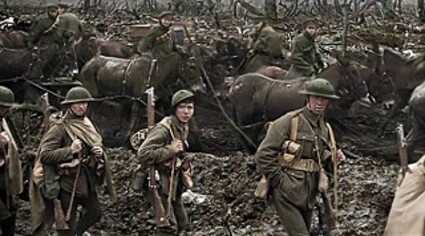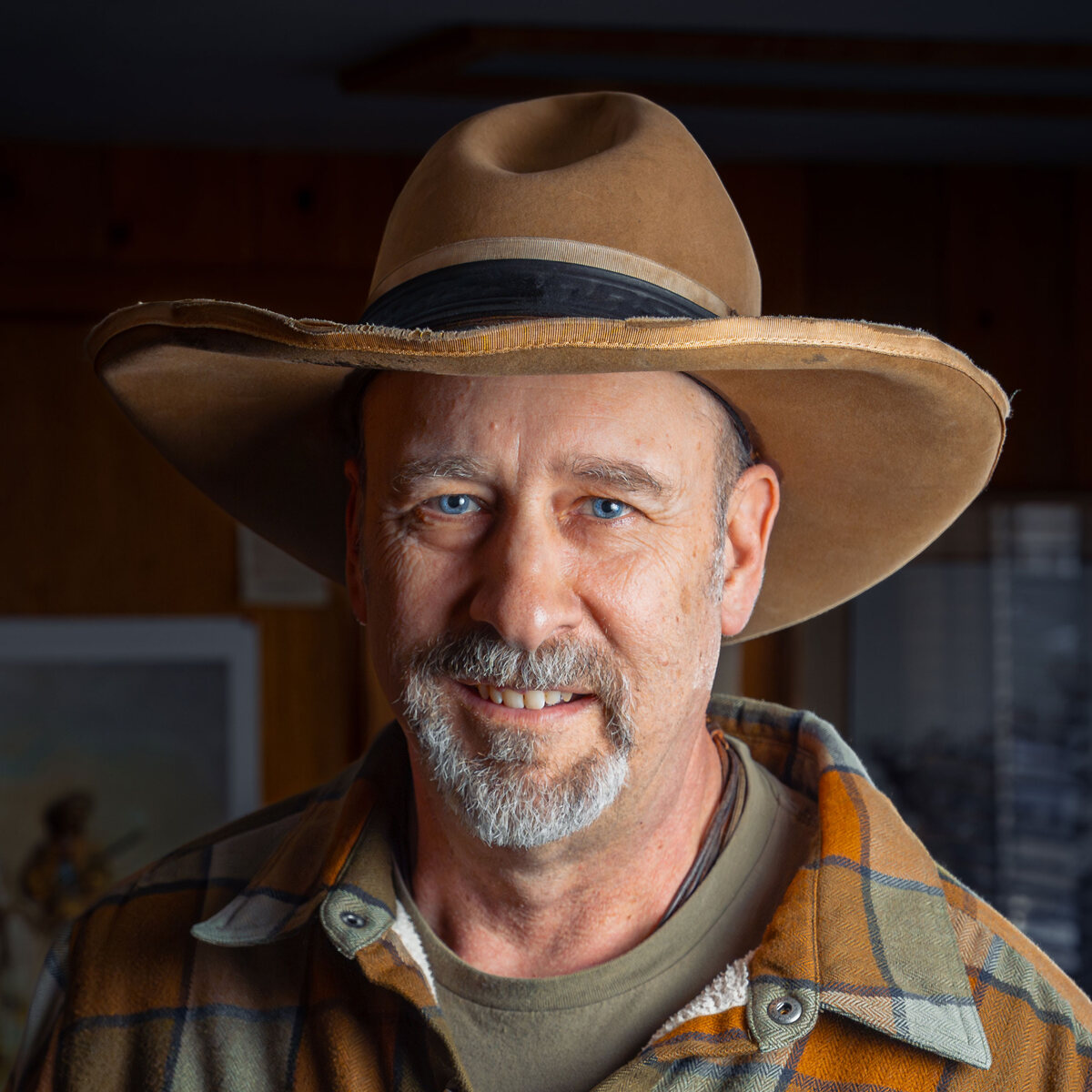The immediacy of history
Last updated 1/17/2019 at Noon

“They Shall Not Grow Old” brings 100-year-old footage of the First World War to astonishing life. Photo provided
I've spent most all my days trying to touch the past. It's a compulsion, a hunger for a connection. I have been accused by some folk who lack understanding of "living in the past," but that misses the mark by a country mile. It's never been about that at all - it's always about making the past present.
When that connection is made, the moment of frisson is so intense it's a kind of high. I've long since given up trying to explain this, falling back on the line from the old Harley Davidson ads: If I have to explain, you wouldn't understand.
Peter Jackson gets it. The Kiwi director has brought the Great War to life as no one ever has before. His film "They Shall Not Grow Old" is a profound experience, one that Nugget columnist Craig Rullman and I shared on December 27 in one of the film's two theater showings in the U.S. It will surely be released on streaming services and DVD - if you haven't seen it, you must.
The director of "The Lord of the Rings" worked some cinematic sorcery to create a unique film document out of footage provided by the UK's Imperial War Museum. In a five-year epic of technological innovation, Jackson's team of wizards restored, colorized, and brought to correct speed remarkable footage of an age gone by. Detailed sound effects were added, including the use of forensic lip readers to identify and voice actors to reproduce what men in the film were actually saying.
The result overwrites our dim, grainy, jerky and silent image of the hundred-year-old conflict that shaped the world we live in, and renders it as alive and immediate as events happening now. The past is present.
Rendered so vividly, the personalities and the humanity of the men depicted in the film come through the screen. They are not just our great-grandparents - they're us. The subjects are all British and Dominion soldiers, but the experience of the trenches of the Western Front was universal - not much different for the Germans, the Americans, the Austrians, the Russians.
That experience, terrifying and horrific as it was, could also be fun, a point that the veterans whose testimony makes the narration of the film raise frequently. The soldiers did not - could not - focus on the horror; they had a job to do and they just "got on with it." And they ate together and cut up and labored and laughed and lived.
The humanity so clearly on display makes it all the more poignant when Jackson notes in a post-film featurette that the men seen staged in a sunken road at The Somme on July 1, 1916, were almost all killed on the first day of that titanic slaughter. We are seeing these men in their last 30 minutes of life.
Jackson's directorial judgment is often questionable - the bloated, bombastic, tone-deaf trilogy of "The Hobbit" being Exhibit A. But in this work, he made the right call in every case. The narration is taken solely from IWM-archived interviews with World War I veterans. There's period music, but no dramatic score to set an emotional tone. And the narrative is entirely experiential - no attempt is made to provide context, chronology or any kind of "history lesson."
The importance of this last is a bit counter-intuitive, but it was absolutely the right course to follow. As Jackson notes: "It's not the story of the war; it's the story of the human experience of fighting in the war."
By focusing solely on the experience of the trenches, "They Shall Not Grow Old" lifts the Western Front out of history and punches through the walls of time. The past is present.
Context is important, of course. I recommend pairing "They Shall Not Grow Old" with Dan Carlin's hours-long Hardcore History podcast, "Blueprint for Armageddon." Carlin admits to being "addicted to context," and this master class serves up a heaping helping of it. Putting the two together will give you the war in fullness.
Why go there? Why bring all that nastiness into our lives?
Making this dark and disturbing past present is necessary - because it is always present, whether we recognize and acknowledge it or not. The First World War pried open a trapdoor to hell that we haven't yet been able to slam down and nail shut. The horrors of industrial warfare and the ability and apparent willingness to commit civilizational suicide are with us today, as are ideologies that were planted and grew in the pulverized soil fertilized with the blood and bones of millions of men - zombie ideologies that seem impossible to kill.
The world that blew itself up in 1914 is not so different from our world today, and we are not so different from the people who were caught in the blast radius. That is the truth that "They Shall Not Grow Old" tells, a truth we ignore at our peril.


















Reader Comments(0)